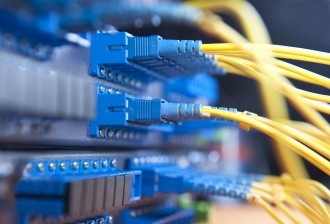The Federal Communications Commission has approved a broadband internet fund that will give money to private companies in order to deliver internet access to rural households. The Connect America Fund is the latest "new economy" project backed by the US government and is said to take the system designed for the Alexander Graham Bell era and modernize it for the Steve Jobs era.
The $4.5 billion deal will acquire funding through traditional consumer fees that had been used to service telephone lines in less populated areas of the country. Private contractors will now use that money to provide broadband internet connections to the remaining five percent of the nation that doesn't have high-speed access.
The FCC hopes that within a decade, an additional 18 million Americans will have access to high-speed internet connections either through traditional landline connections or mobile services at 3G or 4G speeds.
As with any decision, there are those who are in favor and those who disagree with the ruling. Those in favor say the FCC has been out of touch with communication trends for years, pointing to the fact that 33 percent of Americans have replaced their home telephone service with wireless service. Internet providers also favor the ruling, largely because it will equate to more customers using their service.
Those against the move include certain consumer groups and phone companies that feel the plan will result in higher phone bills, somewhere in the ballpark of 50 cents or more per month. That seems like a small price to pay for modern internet access. Still others feel that the wording of the plan hints that phone companies could get first dibs at contracts, leaving cable and wireless providers out to dry.
Image via asharkyu / Shutterstock
